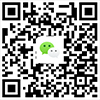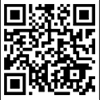【九届通译杯】大赛辅导-听辨1
大赛辅导-听辨1
听辨能力是口译最基础的能力之一,提高听辨能力固然有一些技巧可循,却没有捷径可走,大量练习,创造语言环境才是必经之路。今天就通过实践来跟大家探讨一下提高听辨能力的一些技巧。
英语听辨当中有一些常见的挑战,如讲者的口音,有些同学比较适应美式英语的读音,听到英式英语的发音仿佛听到另一种语言;又如连读和语速过快,让部分同学分不清语块,进而造成信息的遗漏。
对于不同的英语口音问题,大家应该抱着一种开放的心态去探寻其中的乐趣,不同地区的人们口音不同,但说的确实是同一门语言,这不是很有意思的事情吗?进一步,在大量听过不同口音的语段篇章之后,我们可以进一步去总结不同口音当中的发音方式,总有一定规律可供参考。例如日本口音的英语当中“r”的音经常和“l”混淆,印度口音的英语“th”在发音时常会省略成【t】等等。
而对于语速过快、信息过多这样的挑战,建议同学们可以在练习时通过进阶的方式,逐步增大语段和篇章的长度和难度,不要一蹴而就,给自己立下心理阴影。当然,几班是循序渐进,也终有一天会遇到同样的问题,这种时候,我们可以采取两个不同的策略,一种是做精听练习:那就是不断地重复同一语段,直到能够听懂全部内容,做这样的练习可能会遇到一些生词,建议在精听过程中把这些生词也记下来留作积累;另一种则是做泛听练习;遇到听不懂的语段,先不要太过纠结,继续往下听,听完整个篇章之后,通过上下文的意思,起始段落内容的提示去补充没有听到的部分,然后在做重复,这样的练习方式与精听练习相比不那么容易觉得沮丧,更容易坚持。但两种练习方式还是应该相互结合,才能全面锻炼自己的英语听辨能力。
以上就是一些关于提高英语听辨能力的方法和技巧的探讨,接下来请同学们用下面的语段来进行练习吧!
参考文本:
Here’s a short piece from the August 2018 issue of the magazine, in the section called Advances: Dispatches from the Frontiers of Science, Technology and Medicine. Bloodthirsty by Rachel Nuwer.
Mosquitoes are the world's deadliest animals, transmitting diseases that kill hundreds of thousands of people annually. Only the females bite, to acquire protein to make their eggs. But blood can also serve as a refreshing beverage on a hot, dry day.
A new study finds that dehydrated mosquitoes are more aggressive, land more often on hostsand feed more frequently than those with ready access to water. In quenching their thirst, they may also increase the spread of disease. The study is by Joshua Benoit, the biologist at the University of Cincinnati and his colleagues, it appeared in May in Scientific Reports. Because some mosquitoes lay their eggs on water, researchers have long assumed that wetter conditions lead to more mosquito-borne illness. Yet recent studies have hinted at the opposite, linking increased transmission of diseases such as West Nile fever to droughts. Benoit and his colleagues' discovery helps to resolve these counterintuitive findings.
Benoit became interested in the impact of dehydration on mosquito-feeding behavior by accident: a worker dropped a container of water-deprived mosquitoes and noticed that they dive-bombed him with much greater vigor than usual. The researchers studied three mosquito species that transmit yellow fever, Zika or West Nile fever. They exposed hundreds of insects to different temperatures and humidity levels in cages with or without access to water and nectar (mosquitoes' preferred sugar source). They then tested how often the pests chose to bite a "host": in this case a warm, waxy plastic membrane coated in artificial sweat and filled with chicken blood.
Within a few hours up to 30 percent of mosquitoes without water fed on their host's blood—compared with 5 to 10 percent of those that had water.
These findings have real-world applications for predicting rates of disease transmission.
That was Bloodthirsty by Rachel Nuwer.


 微信公众号
微信公众号 手机站
手机站